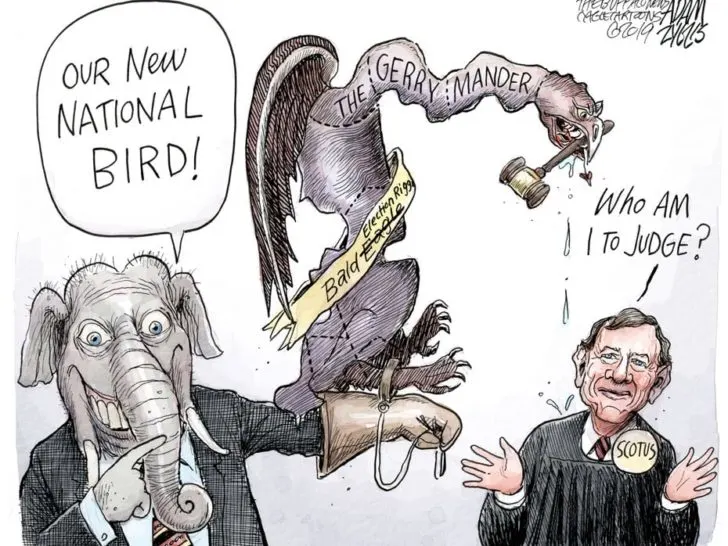The term “gerrymander” refers to the practice of manipulating the boundaries of electoral districts in order to benefit a particular political party or group.
This is typically done by drawing the boundaries of the districts in a way that dilutes the voting power of a rival party or group, while enhancing the power of the party or group responsible for the gerrymandering.
Origin of “Gerrymander”
The term is derived from the name of Elbridge Gerry, the governor of Massachusetts in the early 19th century.
In 1812, Gerry signed a bill that redrew the state’s electoral districts in a way that favored his own political party, the Democratic-Republicans.
The new district map was so convoluted and irregular that one of the districts was said to resemble a salamander, provoking the Boston Gazette editor to say, “Salamander? Call it a Gerrymander!”

Gerrymandering is a common practice in many democratic countries, including the United States.
In the United States, the redistricting process, which is the process of redrawing electoral districts, is typically carried out by state legislatures.
This process occurs every ten years, following the completion of the national census, and is often highly politicized.
Political parties will often try to use their control of state legislatures to redraw district boundaries in a way that benefits their own candidates — not necessarily adhering to the theory of one man, one vote representation.
This can be done in a number of ways, such as by packing large numbers of supporters of a rival party into a small number of districts, or by spreading their supporters out across many districts.
Effects of Gerrymandering
The effects of gerrymandering can be significant, as it can significantly alter the balance of power within a state or country.
For example, a party that would have won a minority of the vote in a state might be able to win a majority of the seats in the state legislature if the districts are gerrymandered in its favor.
Gerrymandering is generally seen as a negative practice, as it can undermine the principle of fair and equal representation.
Critics argue that it allows political parties to manipulate the electoral process in order to maintain or gain power, and can distort the will of the voters.
In recent years, there have been efforts in some countries, including the United States, to address the issue of gerrymandering through the use of independent, nonpartisan commissions to redraw district boundaries.
These commissions are intended to take the politics out of the redistricting process and ensure that districts are drawn in a fair and impartial manner.
An offshoot of gerrymandering is “packing,” which refers to the manipulation of districts to concentrate as many voters of one party as possible into a single district.
Use of “Gerrymander” in a sentence
- The practice of gerrymandering has been criticized for allowing political parties to manipulate the electoral process for their own gain.
- Many states have turned to independent, nonpartisan commissions to redraw district boundaries in an effort to prevent gerrymandering.
- The gerrymandered districts in this state are so convoluted and irregular that it is nearly impossible to determine where one district ends and the next begins.